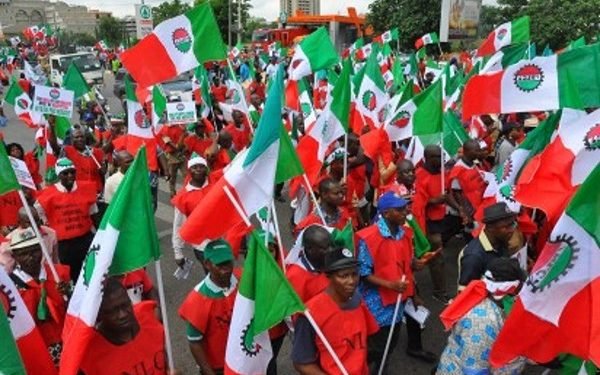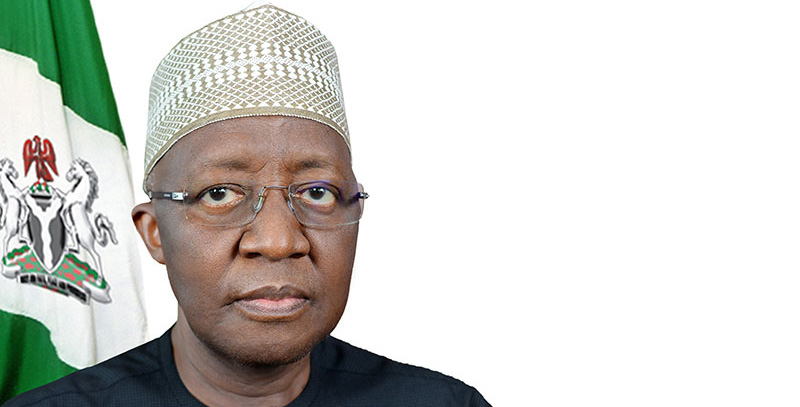Business
Fuel subsidy removal would have set Nigeria on fire – NLC

- TUC urges stepping up local production of petroleum products
Nigeria Labour Congress has reacted to the decision of the Federal Government to suspend the removal of fuel subsidy to a later date, saying it is the right thing to do.
Indeed, the NLC, which spoke along with the Trade Union Congress, said the petrol subsidy removal would have instantly set the country on fire.
The Federal Government had earlier planned to stop the subsidy payments on petroleum products from July, having made provisions for only the first six months in the 2023 budget ending in June.
It however announced its postponement on Monday, saying it was due to “high inflation and economic hardship”.
Speaking on the issue, Head of Information at the NLC, Benson Upah, said the union was glad that the government “has seen the light and decided to do the right thing”.
He said the removal of petrol subsidy “would have set the country on fire”.
“There would have been an instantaneous reaction. Of course, we would have been glad to coordinate those reactions,” he said.
“But happily, they have begun to see the light. Our advice would be that they should take a lesson from the document we gave them on the so-called fuel subsidy removal.
“The answer cannot be far from domestic production.”
Upah said the decision would reduce the corruption in the system while he called on the government to fix the existing refineries or build new ones instead of importing refined petroleum products.
TUC
Secretary-General of the Trade Union Congress (TUC), Nuhu Toro, described the government’s decision as a good move.
He said, “Though it’s coming late, the Federal Government’s decision to suspend the move to remove fuel subsidy has alluded to the fact that such harsh economic policy ought to have been a product of social dialogue which was not done.
“We told Nigerians earlier on that the policy is ill-timed and is not acceptable. So it is good that the government has done a U-turn because the policy cannot be forced down our throat.”
He also said refurbishing the existing refineries and production of petroleum products in Nigeria would be in the best interest of the country.
“First, it would create jobs, make the petroleum products available for consumption and probably reduce the price of the products,” Toro said.
He said, “It will also guarantee foreign direct investment and make Nigeria a better place.
“We are confused that our refineries are not working and we have asked over time, why are the refineries not working.
“So there is a strong need for a deliberate effort by the incoming government to ensure that our refineries work.
“All the monies they claim go to the process of deregulation can actually be utilised to make our refineries functional.”
He urged the incoming government to leverage social dialogue on issues that affect Nigerians, warning against drafting policies overnight and pushing same down people’s throats.
Business
Reversing electricity tariff hike will cost us N3.2 trillion – FG

Reversing electricity tariff hike will cost us N3.2 trillion – FG
The Federal Government has said the reversal of the current increment in electricity tarrif will put more financial pressure on it.
The government said it would need about N3.2 trillion to subsidise and shoulder the cost of electricity this year should the recent hike be canceled.
Sanusi Garba, the chairman, Nigeria Electricity Regulatory Commission (NERC), made this known at a stakeholders’ meeting organised by the House of Representatives committee on power in Abuja on Thursday.
He said that the current investments in the power sector were not enough to guarantee a stable electricity supply nationwide.
He added that if nothing was done to tackle foreign exchange instability and non-payment for gas, the sector would collapse.
Garba disclosed that prior to the tariff review, Electricity Distribution Companies (DisCos) were only obligated to pay 10 per cent of their energy invoices, adding that lack of cash backing for subsidy had created liquidity challenges for the sector.
He added that the inability of the government to pay subsidy led to continuous decline in gas supply and power generation.
READ ALSO:
- Bandits gun down 23 villagers in Kaduna community
- Netizens knock Tinubu aide, Onanuga, over comment on Yahaya Bello arrest
- Boy, 19, nabbed for raping 9-year-old girl in Kwara
He said that the continued decline in the generation and system collapse were largely linked to liquidity challenges.
He said from January 2020 to 2023, the tariff was increased from 55 per cent to 94 per cent of cost recovery.
He added that “the unification of FX and current inflationary pressures were pushing cost reflective tariff to N184/kWh”
“If sitting back and doing nothing is the way to go, it will mean that the National Assembly and the Executive would have to provide about N3.2 trillion to pay for subsidy in 2024,” he said.
Mr Garba said that only N185 billion out of the N645 billion subsidy in 2023 was cash-backed, leaving a funding gap of N459.5 billion.
The vice-chairman of NERC, Musiliu Oseni, also justified the recent tariff increase, saying the increment was needed to save the sector from total collapse.
Rep. Victor Nwokolo, the chairman of the committee, said the goal of the meeting was to address the increase in tariff and the issue of band A and others.
Mr Nwokolo said the officials of NERC and DISCOS had provided useful Information to the committee.
“We have not concluded with them because the Transmission Company of Nigeria is not here and the Generation Companies too.
“From what they have said which is true, is that without the change in tarrif, which was due since 2022, the industry lacks the capital to bring the needed change.
“Of course, the population explosion in Nigeria, is beyond what they have estimated in the past and because they need to expand their own network, they also needed more money, ” he said
Reversing electricity tariff hike will cost us N3.2 trillion – FG
Business
Naira loses N81 to dollar in one day

Naira loses N81 to dollar in one day
The naira lost N81.34 against the US dollar at the foreign exchange market on Thursday
FMDQ data showed that the naira fell to N1,154.08 per dollar on Thursday from N1,072.74 on Wednesday.
This represents a 7.04 per cent loss against the dollar compared to N1,072.74 per dollar traded the previous day.
At the parallel market, the naira also depreciated N1,100 per dollar on Thursday from N1, 040 on Wednesday.
This is the second time the naira would be depreciating against the dollar in three days amid fears of depleting foreign exchange reserves.
Nigeria’s foreign reserves dropped to $32.29 billion as of April 15.
Business
Govt paying N600bn for fuel subsidy monthly — Rainoil CEO

Govt paying N600bn for fuel subsidy monthly — Rainoil CEO
The CEO of Rainoil Limited, Gabriel Ogbechie, has claimed that the federal government resumed the payment of the controversial fuel subsidy following the devaluation of the Naira in the foreign exchange market.
Ogbechie made this statement on Tuesday during the Stanbic IBTC Energy and Infrastructure Breakfast Session held in Lagos.
He pointed out that with Nigeria’s daily fuel usage at 40 million liters and the foreign exchange rate at N1,300, the government’s subsidy per liter of fuel falls between N400 and N500, culminating in a monthly total of approximately N600 billion.
He said; “When Mr. President came in May last year, one of the things he said was that Subsidy is gone. And truly, the subsidy was gone, because immediately the price of fuel moved from 200 to 500 per liter. At that point truly, subsidy was gone.
“During that period, Dollar was exchanging for N460, but a few weeks later, the government devalued the exchange rate. And Dollar moved to about N750. At that point, subsidy was beginning to come back.
READ ALSO:
- North Central Support Group rejects Northern Elders, pledges allegiance to Asiwaju
- Gunmen kidnap 2 FRSC officers along Abakaliki-Enugu highway
- Driver killed, 16 passengers abducted on Abuja-Lokoja road
“The moment the two markets officially closed, officially the market went to about N1,300. At that point, that conversation was out of the window. Subsidy was fully back on petrol. If you want to know where petrol should be, just look at where diesel is. Diesel is about N1,300 and petrol is still selling for N600.
Furthermore, he said that NNPC being the only petrol importer in the country implies that there is an ongoing subsidy, as prices had to be fixed.
Earlier yesterday, the former governor of Kaduna State, Nasir El Rufai, said the federal government is spending more on petrol subsidy than before.
In addition, the Special Adviser to the President on Energy, Mrs. Olu Veŕheijen, said that the Federal Government reserves the right to pay fuel subsidy intermittently to cushion hardship in the country.
“The subsidy was removed on May 29. However, the government has the prerogative to maintain price stability to address social unrest. They reserve the right to intervene.
“If the government feels that it cannot continue to allow prices to fluctuate due to high inflation and exchange rates, the government reserves the right to intervene intermittently and that does not negate the fact that subsidy has been removed,” she said.
Govt paying N600bn for fuel subsidy monthly — Rainoil CEO
-

 Entertainment7 days ago
Entertainment7 days agoTolani Baj expresses love for Bobrisky
-

 metro6 days ago
metro6 days agoTroops neutralise 188 terrorists, rescue 133 hostages in assault operations
-

 News6 days ago
News6 days agoFG gives update on where fleeing Binance executive is hiding
-

 Business7 days ago
Business7 days agoNaira continues gain, sold N1,150/$ at parallel market
-

 metro6 days ago
metro6 days agoViral video: Edo CP orders trial of officer threatening people with gun
-

 News5 days ago
News5 days agoNLC, TUC jointly propose N615,000 new minimum wage
-

 Opinion6 days ago
Opinion6 days agoBBC, Betta Edu, and ministry of corruption – Farooq Kperogi
-

 News6 days ago
News6 days agoI helped Emefiele to collect $3m cash – Dispatch rider




















